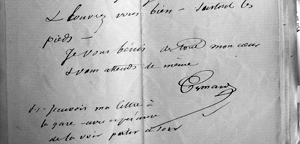“If someone is gay and he searches for the Lord and has good will, who am I to judge?” Pope Francis told reporters. (NY Times, 7/29/2013) “Who am I to judge?” Even today, almost ten years later, Pope Francis’ question silences the judgment calls about the morality of “deviant” sexual behavior.
Preaching today’s Gospel in June of 2016, Pope Francis noted that judgment belongs to God alone, so if we do not want to be judged, we should not judge others. The Pope said, “All of us want the Lord to look upon us with kindness” on Judgment Day and that he “will forget the many bad things we have done in life.” What distinguishes God’s judgment from ours is not “omnipotence” but “mercy.” Jesus calls us hypocrites when we put ourselves “in God’s place.” It is for us to “love,” to “understand, to pray for others when we see things that are not good,” said the Pope, inviting us to talk kindly to others so that they may learn from their mistakes: “But never judge. Never.”
Writing to Mrs. Stephanie Gourde (October 1859), Saint Peter Eymard urged her to “Belong entirely to God through love, entirely to your neighbor through a gracious charity, entirely to the divine Eucharist by the offering and sacrifice of your whole self. Bear with yourself in the patience of our Lord.”
Praying over all of this, I recognize I can be very judgmental – excessively judgmental – virtually every day about matters severe and trivial. Making negative judgments about others’ behavior and my own takes time, time that should be spent in meditation. How can I love God more, show a “gracious charity” toward my neighbor, and sacrifice my “whole self” to serve others? I must “bear with” myself ‘in the patience of our Lord.” And never judge. Never.
Prayer:
Day by day, dear Lord, of thee three things I pray; to see thee more clearly, love thee more dearly, to follow thee more nearly, day by day. (Richard of Chichester)













